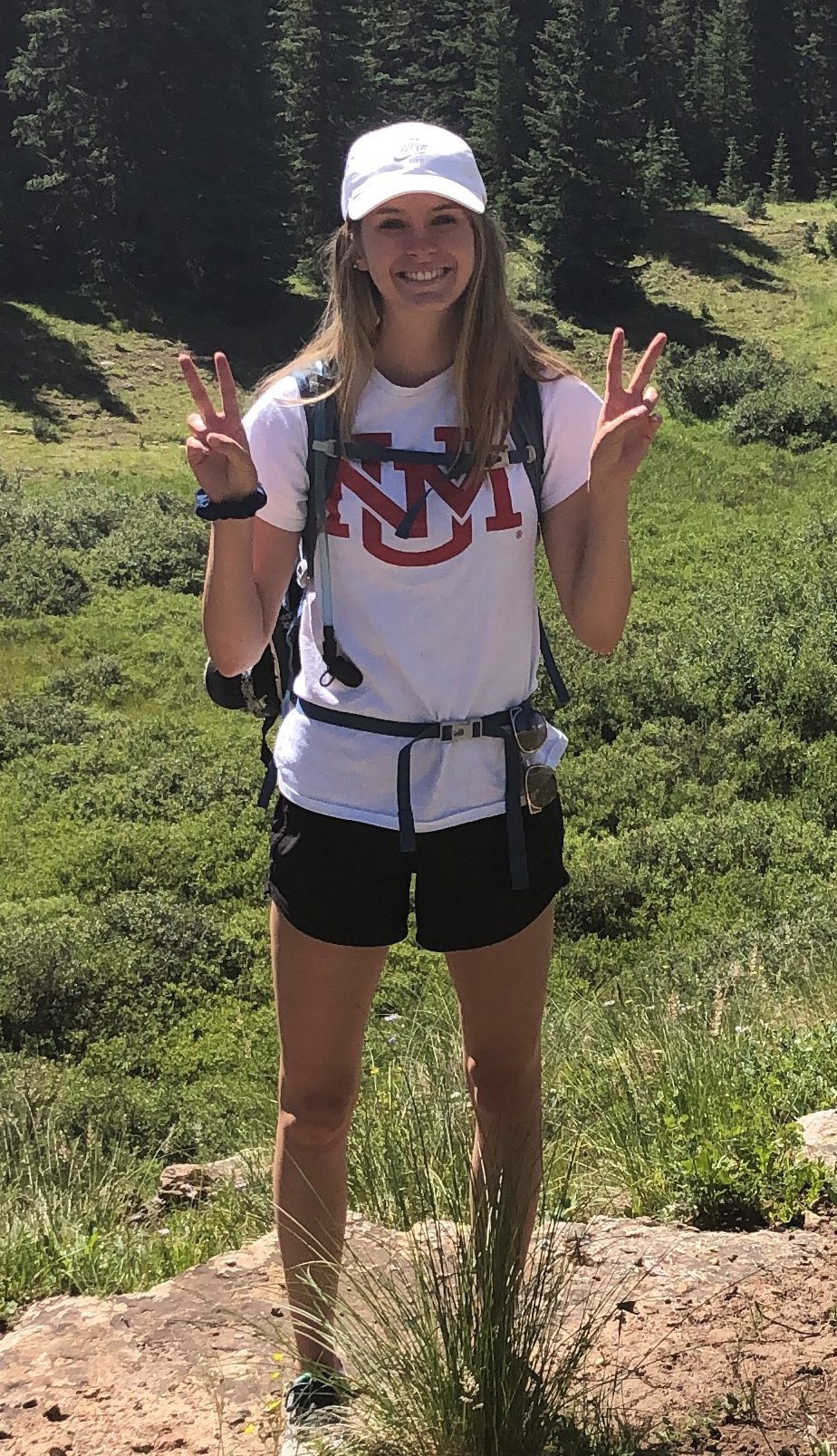By Brittney Seaburn
Research Story Competition, Highlighted Story.
Undergraduate Research Opportunities Conference, 2022.
From a young age, I developed a passion for the environment. In third grade (2008), my class went on a field trip to the Jemez mountains. On this field trip, I saw the beauty of a healthy ecosystem. There were rivers with water flowing, a multitude of plants thriving, and animals throughout the trees, flying and climbing above. Little did I know how much that field trip would impact my life. When I returned to the Jemez mountains for a camping trip, in 2019, I noticed the scarcity of water, lack of animals, and lack of diversity of plants. This ecosystem had been harmed because of climate change. I knew climate change had been affecting the Earth in a multitude of ways, but this was my first time seeing the repercussions of climate change in person. Since I noticed it then, I have not been able to unsee all the changes it has caused throughout my life. Growing up in Albuquerque, the cities used to experience all four seasons.
Now, there are large temperature fluxes as the Earth slowly loses its’ ability to regulate temperature in a four-season cycle due to climate change. Up until around 2008, Albuquerque would get snow off and on from December to February. Now, Albuquerque is lucky to see snow, and if it does, it’ll be in late February or March. Witnessing climate change has driven me to want to make a change and help the environment as much as I can.
Seeing this repercussion, I decided to change my concentration. At the time, I was enrolled in chemical engineering with a concentration in bioengineering. I was interested in biomedical engineering due to a spinal-fusion surgery I had in 2018 to help correct my scoliosis. This surgery led me to a curiosity of engineering applications within the medical field. While this was a curiosity I had, my true passion was towards the environment. My experience with climate change gave me a purpose to switch my concentration from bioengineering to environmental engineering and follow my true passion.

That was until I received an email about a new program at UNM called the Undergraduate Research Opportunity (URO). Within the School of Engineering, this program will pair students with a faculty advisor based on their research interest. I applied right away with the interest of sustainable and energy related engineering applications. In this program, I was paired with Dr. Anjali Mulchandani, a professor and researcher in the Civil Engineering department. During a meeting with Dr. Mulchandani, we decided to start my research from the bottom-up method. Designing my project, I began with identifying the research goal to mitigate climate change. My initial research began with the question, “how can I help reduce carbon dioxide emissions by carbon capture?” I began researching into carbon capture methods and found a natural way to capture carbon was through algae. The benefit of algae is it is a green solution for energy and biodiesel as it uses photosynthesis to convert water and carbon dioxide into energy.

Some advice I have for upcoming seniors is to start research and graduate school applications early. When it comes to research, beginning your sophomore or junior year is a great start and will really help boost your resume for either industry or graduate school applications. Researching in the earlier years of undergraduate school will help narrow down interest of studies and will also help build a network sooner. Networking is key to success within school and work. It helps gain further knowledge and experience as different perspectives and research backgrounds can give different feedback. It can also strengthen letters of recommendation which is crucial for graduate school.
Around a year before your expected graduation date, start networking with faculty researchers to learn about research opportunities within graduate school. Reaching out this early will help increase the success rate in graduate school applications as the professors within the graduate school being applied to can expedite the application. When it comes to graduate school applications, apply as soon as possible. Applications open three to four months before the application due date. If submitted early, there is a chance to hear a response from the school early. An early response is beneficial as it gives more time for the recipient to decide on the best choice for them.
My final bit of advice has to do with impostor syndrome. If you ever feel like you do not belong in a program, know that you do. I know it is easier said than done, but a great start to getting through impostor syndrome is speaking to peers or faculty. When I spoke up about it with many of my peers, I was quick to realize that almost everyone struggles with impostor syndrome. Speaking with faculty can be reassuring as well as they can bring reassurance and give you tips on getting through the impostor syndrome or give resources through SHAC. Overall, just know you belong and try not to let your thoughts of imposter syndrome hold you back.
All in all, the Undergraduate Research Opportunity helped me push through impostor syndrome and showed me I belong in this field. It has motivated me to continue into graduate school and has helped guide me to research in environmental engineering at UNM for graduate school.
